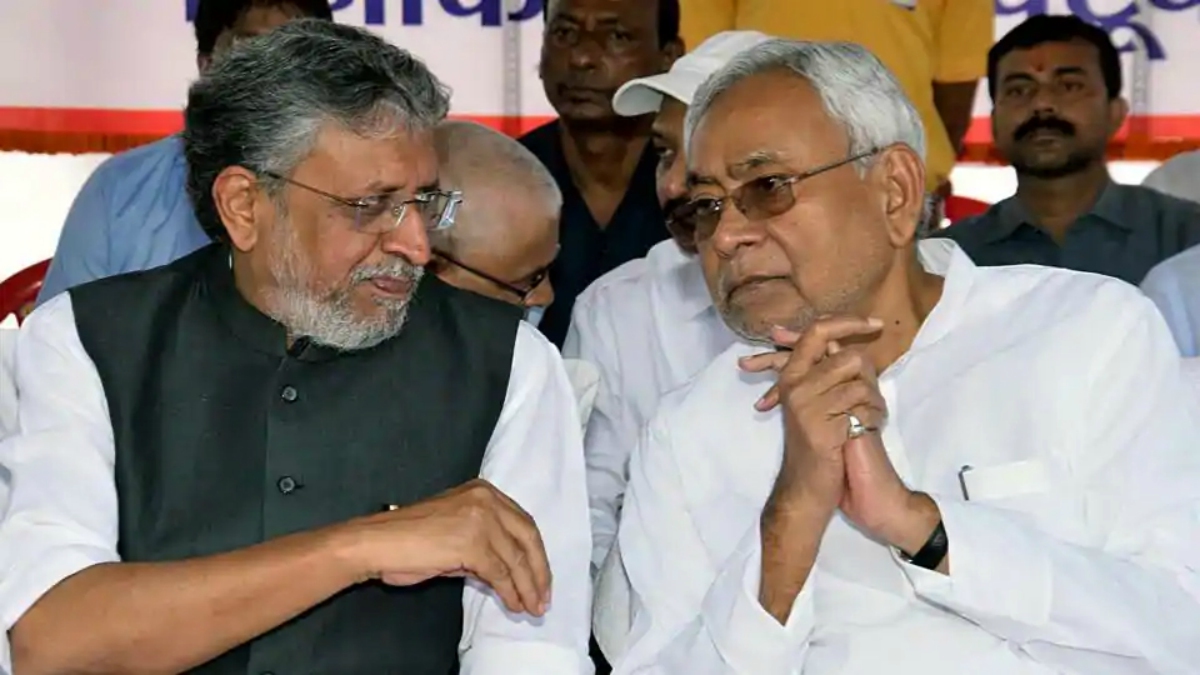


The 2020 Assembly elections in Bihar may be the last one for the trio of Lalu Prasad Yadav, Sushil Kumar Modi and Nitish Kumar. They, along with Ram Vilas Paswan, had emerged as the face of Bihar’s politics in the 1990s, and the four leaders have devised and revised the political narrative of the state for the last 30 years.
The 72-year-old Lalu, who is in a prison in Ranchi, serving his time, is still the last word on who gets the RJD ticket. In the case of the JD(U), it is Nitish Kumar who has selected the 115 party candidates. Meanwhile, 68-year-old Sushil Modi has played a critical role in finalising the BJP candidate selection in at least 40 seats, which is by no measure a small feat in a state where the party has other senior leaders like Ravishankar Prasad, Bhupender Yadav, Nityanand Rai, Ashwini Choubey, Giriraj Singh and Radha Mohan Singh, who too were pushing for their own set of candidates for the 110 seats that the party is contesting on.
While the BJP has been able to develop a team of new leaders in the state — all of whom have been happy to play second fiddle to Modi till now — it is the JD(U) which is going to face an existential crisis very soon due to the lack of a face or the stature which could carry the mantle of the party once Nitish becomes irrelevant, either by choice or by circumstances. This existential crisis is likely to come sooner if the party performs poorly in this election, as is being predicted by Patna-based political observers.
People who have followed Nitish’s way of doing politics say that he has always been insecure and hence has not allowed anyone else to become significant in the party. Some of his party leaders, like K.C. Tyagi, realised this and never exceeded their brief, while some others like Pavan K. Varma, a career diplomat, had the idea that he was the brain behind the JD(U) and paid the price for that.
This insecurity also explains Nitish’s penchant for having bureaucrats around him. R.C.P. Singh, who served as the Principal Secretary to Nitish, like Varma, is another example of this, and so is Pratyaya Amrit, Nitish’s go-to bureaucrat. The only notable exception to this love for bureaucrats is Rajiv Singh (Lalan Singh) who is the party’s Lok Sabha MP from Munger. The reason for this exception, despite Singh turning rebel against Nitish in 2010, is a long story.
Second, Nitish, like a practical politician probably should, has supported and supports only those who he thinks were or are in a position to help him in the near future. Usefulness was, and still is, the criterion which the 69-year-old Nitish uses to decide whether to oblige someone or not. This has left him with no loyal friends, in the real sense. So, once he loses power, he is likely to find himself with not many shoulders to lean on.
Kumar, who is facing a massive anti-incumbency, according to sources close to him, still believes that he is going to sweep the elections and that the anti-incumbency narrative was being spread by pro-BJP media on the orders of the BJP leadership.
The nearest Nitish came to having a successor, in any sense, was in October 2018, when he appointed political strategist Prashant Kishor as the national vice president of his party. However, as had been speculated by people who have known Nitish, this bonhomie between him and Kishor did not last long and Kishor was expelled from the party in January 2020. This was after Kishor, upon realising that he could take independent decisions when it came to party affairs by virtue of his new position as VP — which turned out to be a wrong realisation in the end — started to interfere in the party’s working. This was something which was not appreciated by Nitish and his coterie of serving and retired bureaucrats, who by some strange coincidence, belong to the same Kurmi caste which Nitish belongs to.
This correspondent is privy to multiple interactions where the supposed close friends of Nitish — who ‘grew’ and got positions not because of any special talent, but because they had the much common trait of saying ‘yes’ and never ‘no’ to their boss’ commands — criticised Nitish and his policies in private, despite appreciating the same in front of him and in public.
Come 10 November, when the Bihar election results will be announced, if the predictions come true and the JD(U) finds itself confined to less than 30 seats, the dismantling of the JD(U) and the balkanisation of Nitish’s empire will start.